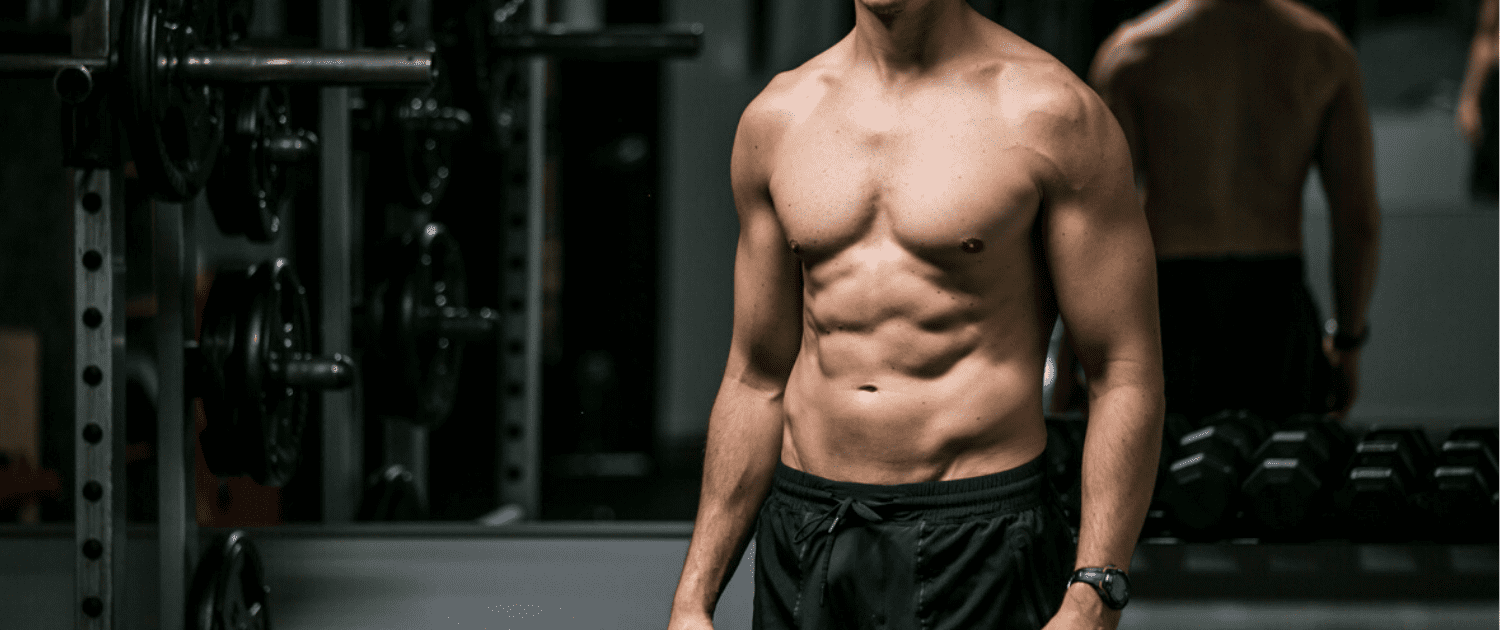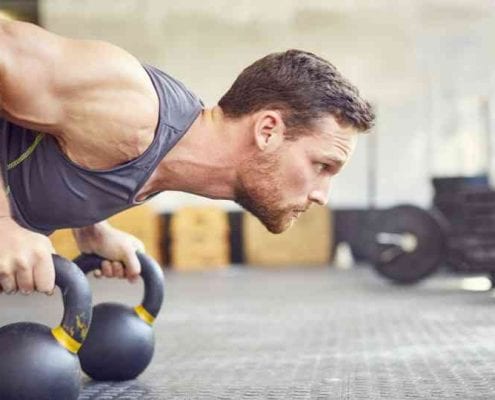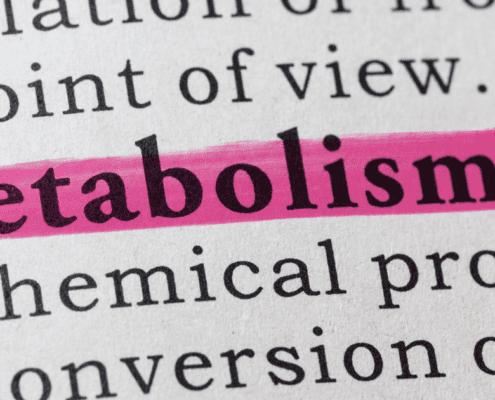Lifting Weights Is Better Than Cardio To Lose Fat
Last updated: June 30, 2020 by Michael Fouts
Estimated reading time: 4 minutes
If you’re looking to maximally enhance your physique, or as I call it Look Better Naked, you want to build muscle and lose fat. In this case, lifting weights is the best way to do this and not excessive cardio.
Why? Most importantly we need to look at what happens when your body is in an energy deficit; when you’re expending more calories than you’re taking in. Your body has two stores of energy to use, fat and muscle.
In the case of enhancing your physique, and many others, you want to lose fat and not muscle.
In this post I’ll explain why you shouldn’t just do cardio, and weight training should be an integral part of your weight loss strategy – bare minimum of 1-2x per week.
To understand this, let’s first look at what could happen if you just do cardio. If cardio (running, biking, etc.) is your sole form of exercise, you will lose weight – provided you’re also eating in such a way that you’re creating a calorie deficit. However, one, or a combination, of the following will likely occur:
- You lose weight, but gain the weight back afterwards.
- Your weight loss plateaus.
- When you hit your goal weight, or close to it, you look skinny/unhealthy.
If you instead incorporate weight training, you can:
Preferentially Lose Fat
Many studies have shown then when you incorporate weight training into a weight loss program it helps tip the scales in favor of fat being used and lean muscle being preserved. In other words, by stimulating and using the muscle you don’t lose it. The following rings true when it comes to what’s chosen as an energy source during weight loss:
If you don’t use it, you’ll lose it.
Prevent Weight Re-gain
The amount of muscle you have plays a key role in determining how much energy you require on a daily basis; this is often referred to as your metabolism. The more lean muscle you have, the more energy (food) you require to sustain yourself.
When losing weight:
- If you primarily lose fat, then the amount of energy you need to sustain yourself will be pretty similar.
- If you lose muscle, then this amount will decrease. What this means is that you’ll now need to eat consistently less in order to maintain your new weight.
Further, lean mass is essential to survival. When you lose lean mass the body sees this as a threat to survival and starts to overcompensate. This usually results in sustained increased hunger and reduction of metabolic rate, these two mechanisms typcially persist until the fat mass gained accounts for the amount of lean muscle lost (this study talks about this).
Taken together, it should make sense that retention of muscle during weight loss will help maintain your weight and prevent weight re-gain.
Prevent or Delay Weight Loss Plateau
As you lose weight you become a “smaller person” and therefore require less energy. If you don’t adjust for this change in your exercise and nutrition strategy, your rate of weight loss will lessen over time (1.5% bodyweight lost per week, to 1.0% bodyweight lost per week…). Even more so if you’ve lost muscle along the way. For some this means your rate of weight loss might seems like it’s stalled, or otherwise reached a plateau of sorts.
Lifting weights will help prevent, or delay, the onset of a plateau. This is mostly due to helping you retain muscle and therefore keeping your energy demands (metabolism) higher.
How to adjust your exercise and nutrition strategy for continual weight loss:
- Plan to increase the amount of exercise, and/or NEAT, that you’re doing
- Strategically decrease caloric intake
- Combination of 1 & 2
- Accept a lower rate of weight loss and be patient
- More involved and more targeted to someone who’s been dieting for a long time: do a reverse diet, then restart dieting again. For some this can help reverse some of the metabolic down regulation that has occurred from chronic dieting; your body will slow it’s metabolism – not increasingly so that weight loss isn’t attainable, but it does make weight loss harder – in response to a significant decrease in energy intake as a compensation mechanism.
Look Better Naked
When losing weight, If you lose fat and maintain – and in some cases gain – muscle then you’re going to look better naked.
The above shouldn’t be read as: “don’t do cardio.” Rather, lifting weights and cardio should be used together as part of your weight loss strategy. If you could only do one or the other, then you should lift weights; if you’re a girl and concerned that lifting weights will make your “bulky” then read this.






